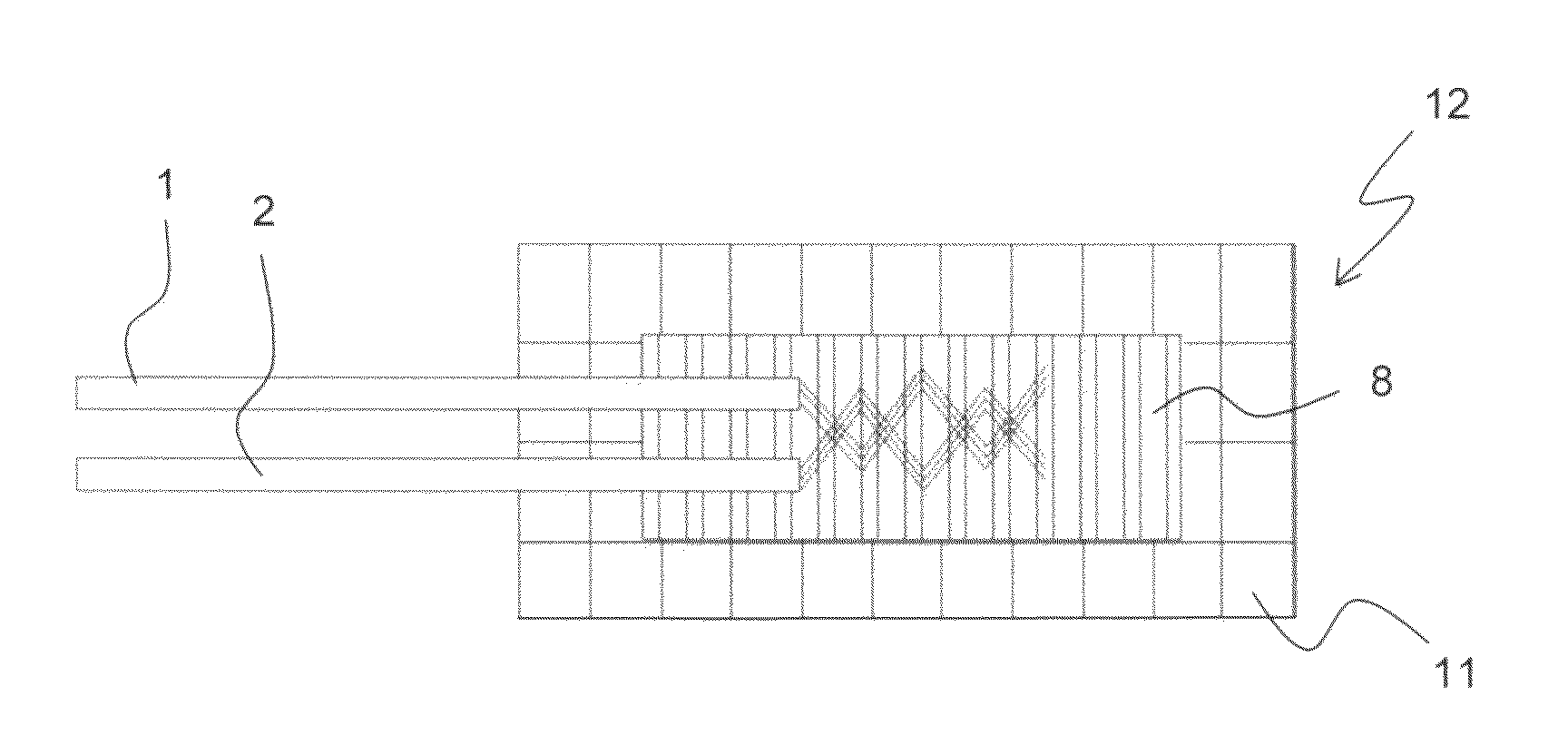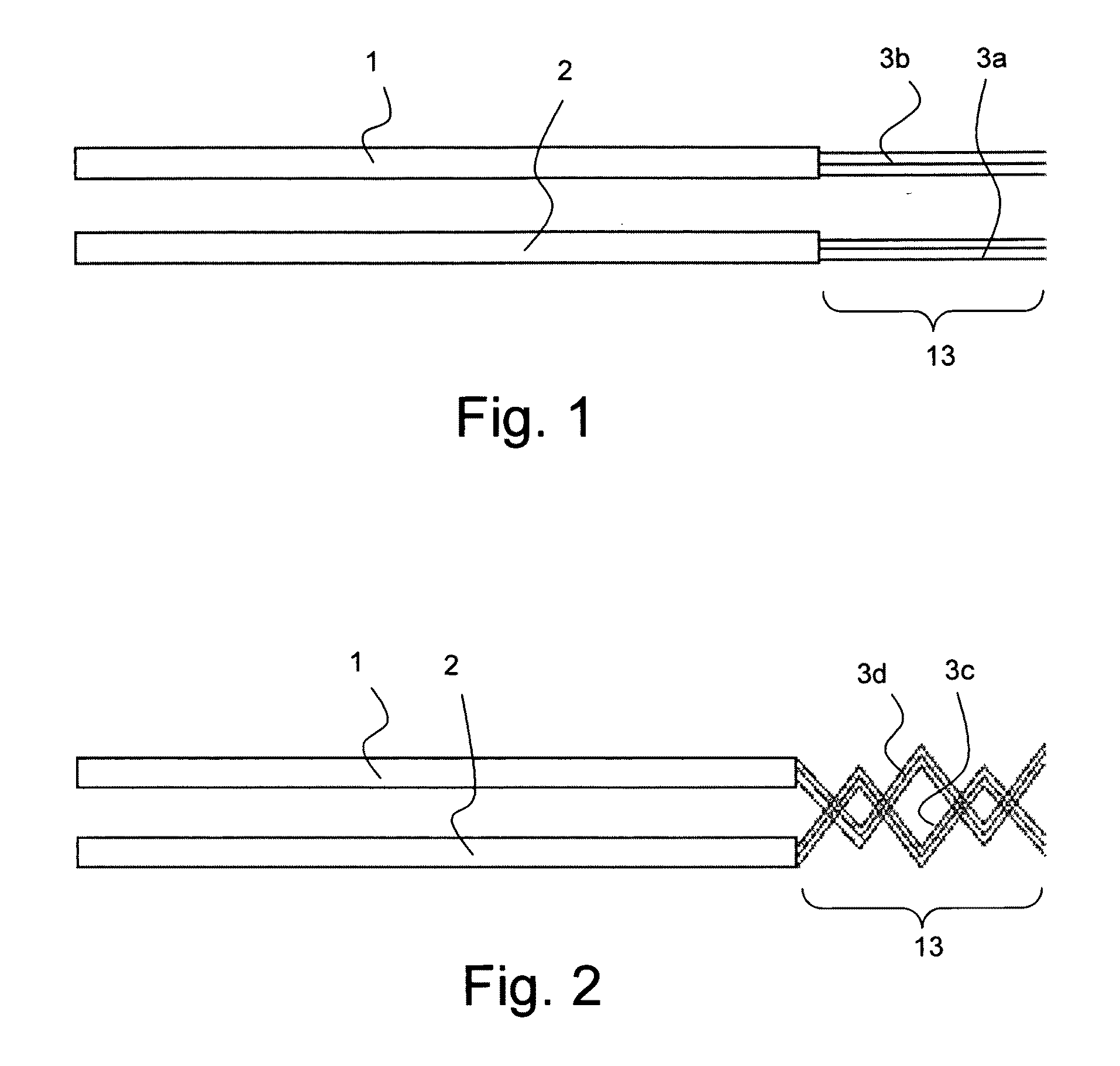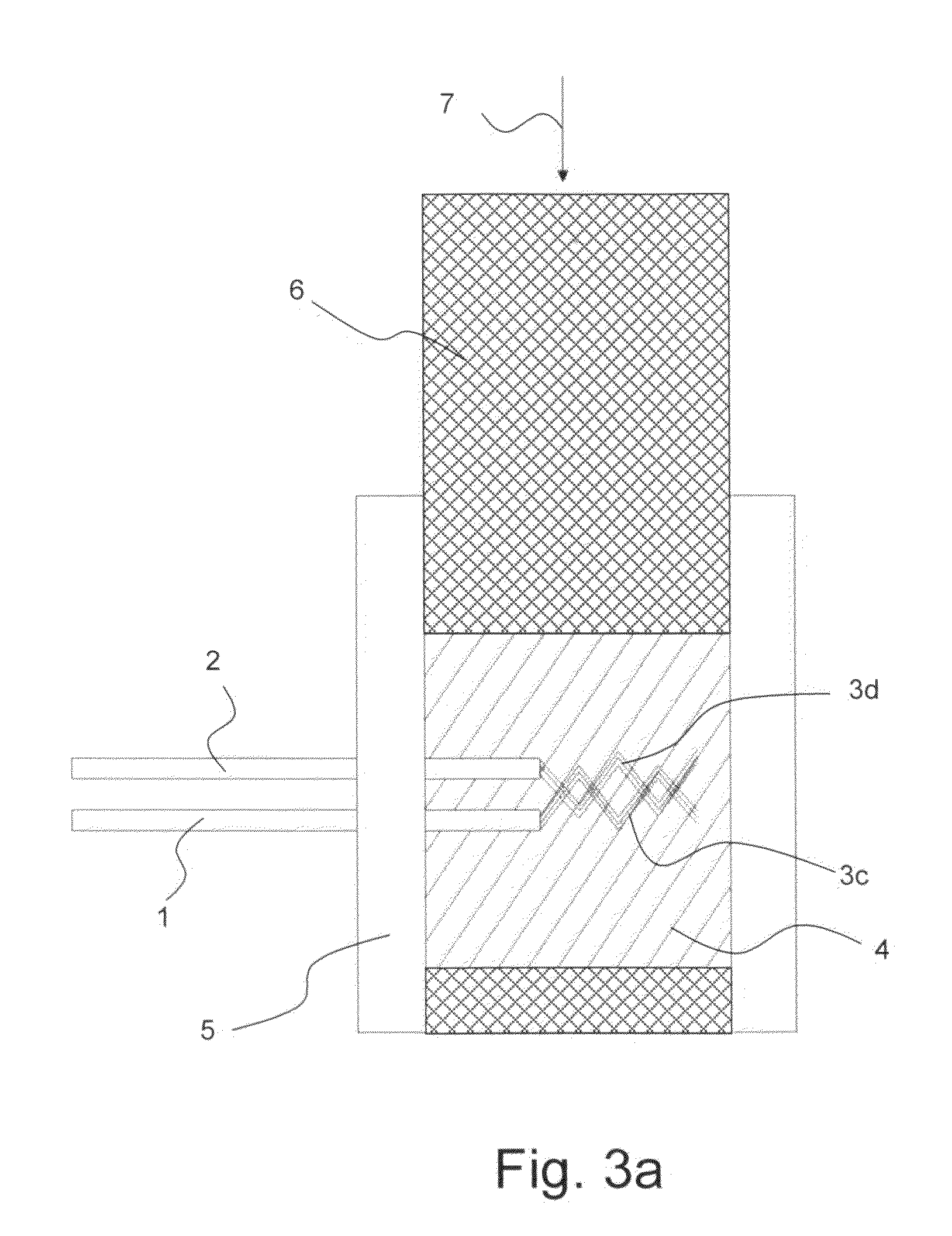Superconducting connection between MgB2 superconducting wires via a compressed element made from HTS powder
a superconducting wire and superconducting element technology, applied in the direction of superconducting magnets/coils, connection contact materials, magnetic bodies, etc., can solve the problems of relatively small current carrying capacity of joints, relatively high cost of nbti, and superconducting connection points, etc., to improve pressing behavior and/or solidity of compressed elements, the effect of high current carrying capacity
- Summary
- Abstract
- Description
- Claims
- Application Information
AI Technical Summary
Benefits of technology
Problems solved by technology
Method used
Image
Examples
Embodiment Construction
[0039]FIG. 1 shows two superconducting wires 1, 2, each comprising several filaments 3a, 3b that contain MgB2.
[0040]Each filament 3a, 3b is exposed in one end region 13 (in FIG. 1 on the right-hand side). Towards this end, a coating of Monel, Fe, Nb, Ta, Ti, stainless steel, Ni, Cu or Cu alloy has been removed in the end region 13 of the illustrated wires 1, 2, e.g. through etching (exposure may also be realized by other chemical and / or mechanical methods, e.g. grinding or abrasion; it is thereby not absolutely necessary to remove all coatings). The filaments 3a,3b of the two wires 1, 2 shall be superconductingly connected in accordance with the invention (cf. FIGS. 3a to 6). Towards this end, the filaments 3a, 3b of the various wires 1, 2, should be brought into the direct vicinity of each other.
[0041]FIG. 2 shows, similarly to FIG. 1, two superconducting wires 1, 2, each also comprising several filaments 3c, 3d, which are exposed in an end region 13 and contain MgB2, and being int...
PUM
| Property | Measurement | Unit |
|---|---|---|
| transition temperature | aaaaa | aaaaa |
| boiling point | aaaaa | aaaaa |
| transition temperature | aaaaa | aaaaa |
Abstract
Description
Claims
Application Information
 Login to View More
Login to View More - R&D
- Intellectual Property
- Life Sciences
- Materials
- Tech Scout
- Unparalleled Data Quality
- Higher Quality Content
- 60% Fewer Hallucinations
Browse by: Latest US Patents, China's latest patents, Technical Efficacy Thesaurus, Application Domain, Technology Topic, Popular Technical Reports.
© 2025 PatSnap. All rights reserved.Legal|Privacy policy|Modern Slavery Act Transparency Statement|Sitemap|About US| Contact US: help@patsnap.com



